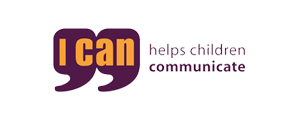What is Selective Mutism?
Selective mutism is both a communication and a mental health disorder. Selective mutism is not the result of normal shyness, defiant behaviour or routine separation e.g. starting school. Often selective mutism is related to chronic social anxiety. Children with selective mutism may present as being unable to speak in certain situations and settings. Children may speak in certain situations and social settings with a select number of adults or children who they feel secure and comfortable with. In other situations, they may not be able to speak at all to these select people, as they fear they may be overheard by others.
How common is Selective Mutism?
Recent research suggest that selective mutism is becoming more prevalent in children, it is estimated that 1 in every 150 children have selective mutism. Selective mutism commonly affects more girls than boys. Children who have other family members who are excessively shy, anxious or struggle with social relationships are more likely to have selective mutism. Prevalence of selective mutism is more common in children who come from socially isolated families.
What causes selective mutism?
The cause of selective mutism is not always clear in children. There can be many factors that can add to the child’s fear and anxiety around speaking such as:
Predisposing factors:
- Anxiety.
- A family history for excessive shyness, psychiatric illness, anxiety or selective mutism.
- Speech or language difficulties.
Perpetuating factors:
- Success in communicating non –verbally.
- Negative models of communication in the child’s family or environment.
- Social isolation.
- Over acceptance of the child’s mutism.
- Reinforcement of mutism through increased attention or affection.
- Being part of an ethnic minority or a linguistic minority.
- Lack of appropriate management or intervention.
Precipitating factors:
- Teasing or bullying.
- Negative reactions from others.
- Starting school or nursery causing separation from parents.
- Separation, loss or trauma.
- Frequent moves or migration.
- Self-awareness of speech and language difficulties present within the child.
What are the signs of Selective Mutism?
Selective mutism is frequently associated with other behavioural, social and psychological conditions and behaviours. Speech and language therapy can help to reduce some of the behaviours by providing support and helping to increase communication.
Selective mutism is often associated with the following conditions and behaviours:
- Social phobia
- Social anxiety
- Psychiatric disorders
- Delays in speech and language
- Excessive shyness
- Fear of social embarrassment
- Aggressiveness
- Stubbornness
- Social awkwardness
- Social isolation
- Negativism
- Uneasiness
- Seriousness
- Clinging type behaviour
How to support Selective Mutism?
Our speech and language therapists will work alongside you to create a therapy plan based around your child's individual support needs. Our therapists can carry out observation, assessment and therapy sessions at home, in school and clinic.
Next steps
Our speech and language therapists will offer a detailed assessment and continuous therapy programme for children with selective mutism. If you think that your child has selective mutism, they appear to demonstrate symptoms of selective mutism or you have been alerted to this from school then please email office@sltforkids.co.uk or call 0330 088 2298.
To discuss training needs within your setting please take a look at our training service page or contact training@sltforkids.co.uk.








